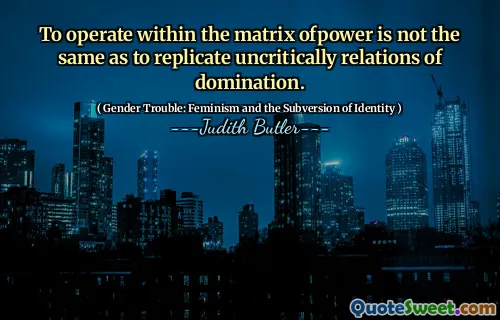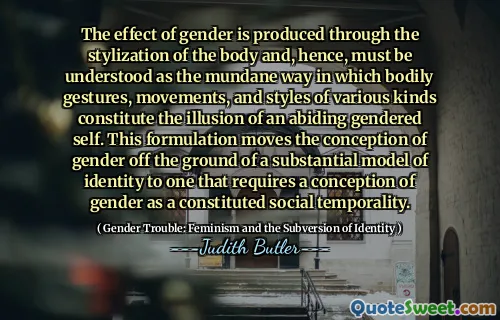
The effect of gender is produced through the stylization of the body and, hence, must be understood as the mundane way in which bodily gestures, movements, and styles of various kinds constitute the illusion of an abiding gendered self. This formulation moves the conception of gender off the ground of a substantial model of identity to one that requires a conception of gender as a constituted social temporality.
Judith Butler's "Gender Trouble" argues that gender is not a static identity but is instead shaped through everyday performances and expressions of the body. These bodily gestures and movements create the perception of a stable gendered identity, but they are actually part of a dynamic construction. By emphasizing the social and temporal aspects of gender, Butler shifts the understanding of identity away from a fixed, substantial model towards recognizing it as something that is continually developed through social interactions.
This perspective challenges traditional notions of gender by suggesting that it is not an inherent quality, but rather a role that individuals enact within society. The idea of gender as a performance highlights the fluidity and variability of gender identities, allowing for a more nuanced understanding of how individuals experience and express their gender over time. This conceptualization encourages a critical examination of the norms and behaviors that shape our perceptions of gender, ultimately subverting the notion of a singular, fixed identity.






